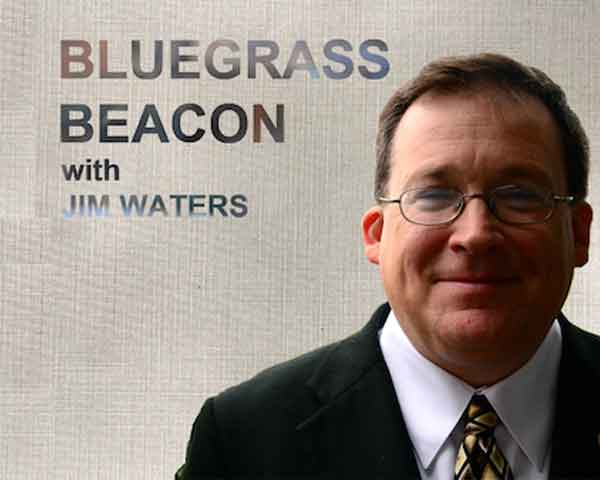Bluegrass Beacon: Legislature should lift restrictions on home-based ‘learning pods’
By JIM WATERS
Bluegrass Institute for Public Policy Solutions
Thursday, Jan. 19, 2023 — Legislative leaders envision a more traditional, non-budget session during the 2023 General Assembly and are discouraging major policy changes and spending requests.
House Speaker David Osborne, R-Prospect, told Spectrum News that such an approach will allow “us to pump the brakes a little bit and tweak some things where they need to be tweaked.”

Such “tweaking” could be effective in protecting – even enhancing – Kentuckians’ liberties regarding how they educate their children.
House Bill 27 introduced by Rep. Felicia Rabourn, R-Pendleton, with several co-sponsors – including recent gubernatorial candidate Rep. Savannah Maddox, R- Dry Ridge – “fits the bill” perfectly.
This legislation neither costs anything nor proposes new policy or intense overhaul of existing legislation.
It simply clarifies that Kentucky’s parents can educate, or supplement the education of, their children with “learning pods” – small groups of students from two or more families learning together at home with either parents or hired tutors serving as instructors – without being forced to jump through bureaucratic hoops.
The innovative concept of “learning pods” as an educational alternative was one of the bright spots arising from the darkness of closed classrooms in locked-down public schools during the pandemic.
Parents deeply concerned about the impact that closing schools would have on children’s educational and social development took matters into their own hands by pooling resources to form these small learning groups so their kids wouldn’t lose out on years of academic progress and the emotional growth gained from learning together.
Learning pods don’t adhere to some cookie-cutter-one-size-fits-all approach. Each pod’s families decide the approach they use.
Some pods provide the entire educational curriculum and instruction for children; others exist to support students’ online learning in a group setting that includes play and social interaction critical to their development.
The increasing popularity of alternatives should not be altogether surprising, considering the already-wavering trust of parents in the public education system and its overall inability – fully exposed by the pandemic – to provide a quality learning experience online when it was most needed.
A Heart and Mind Strategies poll conducted during the pandemic found that nearly half of Americans favor an approach to education where traditional public schools aren’t the only option.
The poll found that of the 61% of public school parents who switched to a different school during the pandemic, 15% began homeschooling their children. Half of respondents believe that state requirements for learning-pod arrangements should align with existing homeschool and private school laws “so that pod families do not bear heavier regulatory burdens compared to families already exercising their right to choose how and where their children learn.”
Rabourn’s bill does just that, ensuring regulatory burdens are more like what’s already required in Kentucky for homeschooling – tell your local school board you’re doing it – versus the more-stringent demands for child care centers. Such onerous regulations provide temptation to anti-school-choice teachers’ unions or overzealous ideological bureaucrats at the cabinet to harass parents who form or participate in learning pods by, for example, forcing them to submit to the intrusion of home visits by the state.
The bill also removes the commonwealth’s power to require the state-certification of learning pod instructors.
The COVID-19 pandemic informed many Kentucky parents about what was – and was not – being taught and learned in their children’s public schools. It spurred them to do what they could to ensure their children didn’t miss out on years of learning.
Rabourn’s bill protects parents who decided to continue educating their children in learning pods even after the pandemic lifted and removes bureaucratic obstacles for families wanting to take that route in the future when the next shutdown occurs, or frankly, for any reason.
By approving that legislation, lawmakers stay true to their mission of “tweaking” in 2023 but also send the message: we’re going to protect and expand the educational liberty of Kentucky’s parents every chance we get.
Jim Waters is president and CEO of the Bluegrass Institute for Public Policy Solutions, Kentucky’s free-market think tank. Read previous columns at www.bipps.org. Reach him at jwaters@freedomkentucky.com and @bipps on Twitter.
-30-





